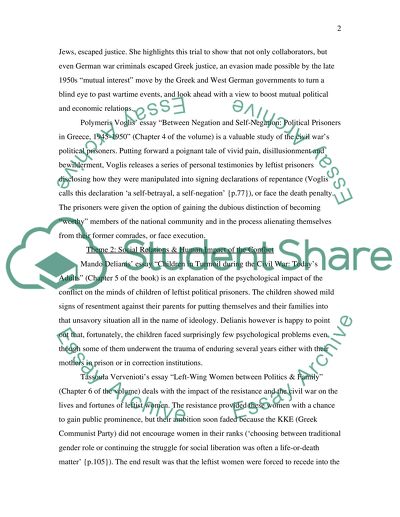Cite this document
(Greek Society After Its Liberation Assignment Example | Topics and Well Written Essays - 2102 words, n.d.)
Greek Society After Its Liberation Assignment Example | Topics and Well Written Essays - 2102 words. Retrieved from https://studentshare.org/politics/1536114-mark-mazowers-after-the-war-was-over
Greek Society After Its Liberation Assignment Example | Topics and Well Written Essays - 2102 words. Retrieved from https://studentshare.org/politics/1536114-mark-mazowers-after-the-war-was-over
(Greek Society After Its Liberation Assignment Example | Topics and Well Written Essays - 2102 Words)
Greek Society After Its Liberation Assignment Example | Topics and Well Written Essays - 2102 Words. https://studentshare.org/politics/1536114-mark-mazowers-after-the-war-was-over.
Greek Society After Its Liberation Assignment Example | Topics and Well Written Essays - 2102 Words. https://studentshare.org/politics/1536114-mark-mazowers-after-the-war-was-over.
“Greek Society After Its Liberation Assignment Example | Topics and Well Written Essays - 2102 Words”, n.d. https://studentshare.org/politics/1536114-mark-mazowers-after-the-war-was-over.


